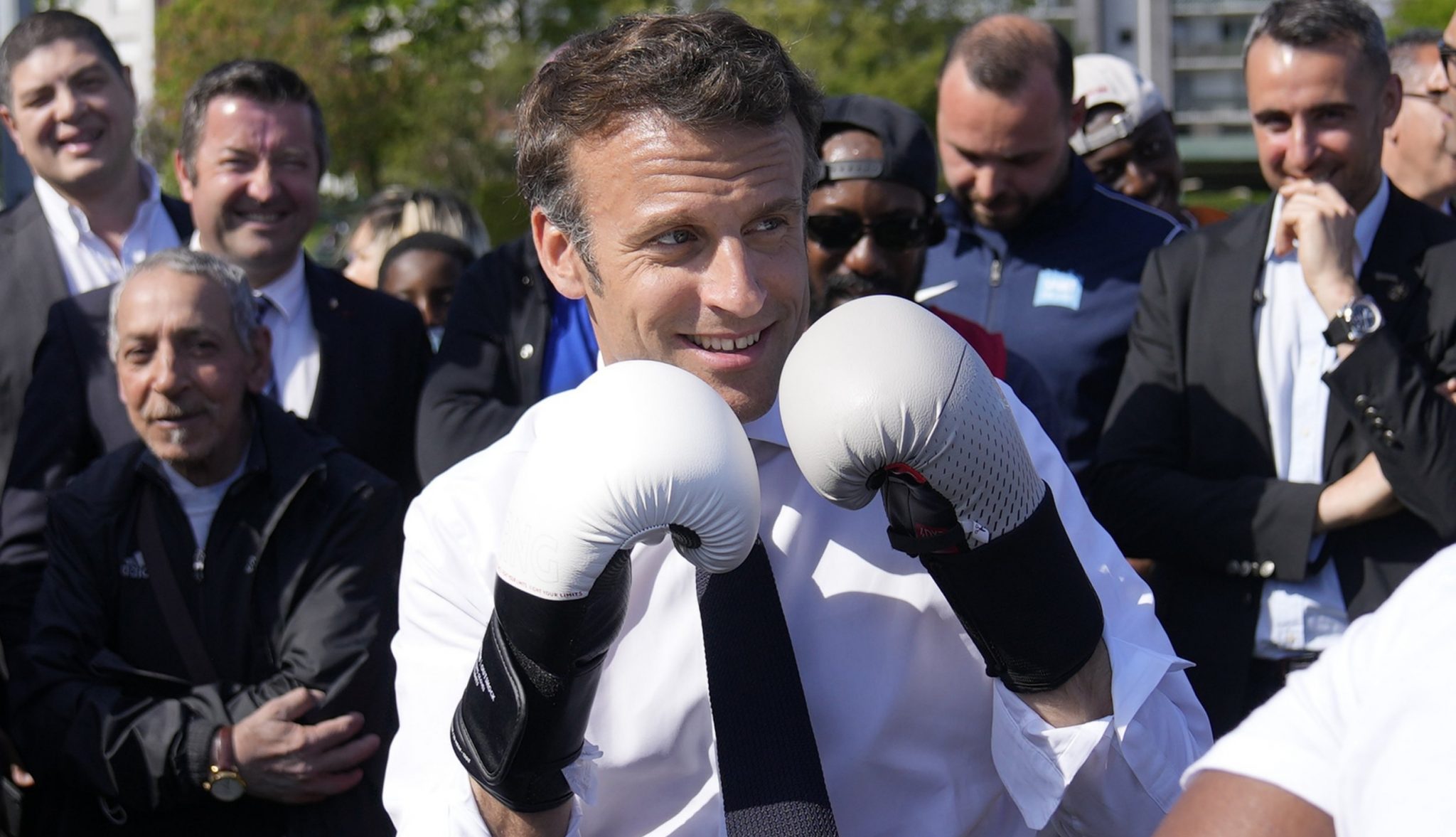On Sunday, Emmanuel Macron easily defeated far-right competitor Marine Le Pen in the French Presidential elections, averting a political earthquake in Europe, but admitting to discontent with his first term and promising to make repairs.

As the results displayed on a huge screen near the Eiffel Tower in the Champ de Mars park, his fans erupted in laughter. Leaders in Berlin, Brussels, London, and others hailed his victory against Le Pen, a nationalist and eurosceptic.
Macron was on track for a respectable 57.4 percent of the vote with 97 percent of votes counted, according to interior ministry estimates. However, in his victory speech, he admitted that many people voted for him just to keep Le Pen out, and he vowed to address the widespread perception that the French are losing their living standards.
Economic problems have risen to the forefront of the campaign after two years of disruption caused by the virus and rising energy prices worsened by the Ukraine war. The growing cost of living is putting a pressure on the country’s poorest citizens.
Le Pen, who had been behind Macron in opinion surveys by just a few points at one point during the campaign, promptly conceded defeat. But, with legislative elections coming up in June, she promised to keep fighting.
In a country where deep political divides have been exposed by an election in which extreme groups performed strongly, Macron should expect little or no grace period. Many expect public protests to erupt again as he pushes through pro-business policies, as they did during his first term.
The outcome of Macron’s current campaign will be determined by the next legislative elections.
Le Pen is seeking a nationalist alliance, which might lead to her collaborating with rival far-rightists such as Eric Zemmour and her niece, Marion Marechal.
Hard-left Jean-Luc Melenchon, who has emerged as the most powerful figure on the left in French politics, has said that he deserves to be Prime Minister, forcing Macron into an awkward and stalemate-prone “cohabitation.”
Macron’s triumph was welcomed as a reprieve for conventional politics, which had been shaken in recent years by Britain’s withdrawal from the European Union, Donald Trump’s election in 2016, and the rise of a new generation of nationalist politicians.
The dissatisfaction with Macron was reflected in a predicted abstention rate of roughly 28%, the highest since 1969.
Initial polls revealed a substantial divide in the vote, both in terms of age and socioeconomic status: According to a study, two-thirds of working-class voters favoured Le Pen, while comparable percentages of white-collar executives and retirees backed Macron.
Macron received roughly 59 percent of votes among 18-24 year-olds, with other age groups voting fairly equally. During the campaign, Le Pen focused on the growing cost of living and Macron’s occasionally brusque demeanour as two of his major flaws.
She pledged steep fuel tax cuts, a 0% sales tax on necessary commodities like pasta and diapers, income tax exemptions for young employees, and a “French first” approach to job creation and welfare.
